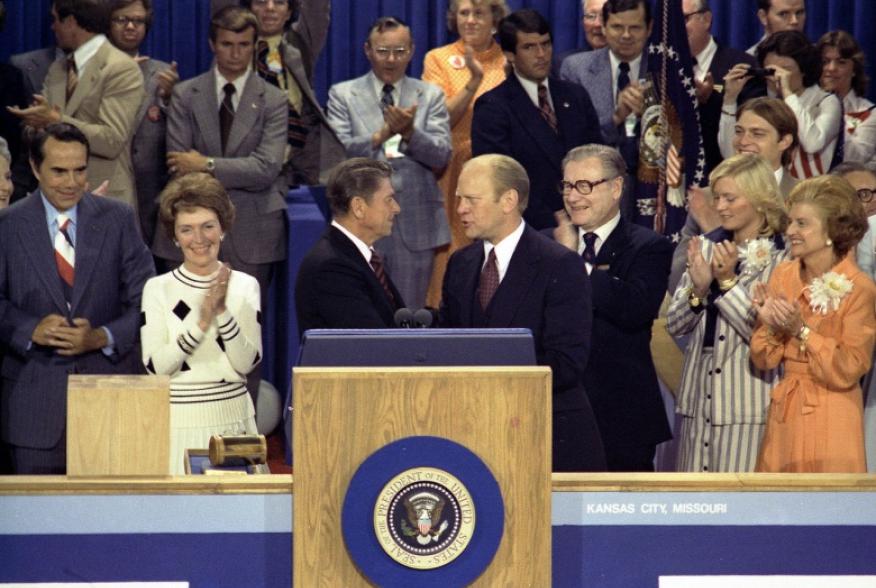The Democratic presidential primary could end with a contested convention.
In order to win the primary, a candidate must win a majority of state delegates before the convention, but a likely scenario is that neither Bernie Sanders nor Joe Biden go into the Milwaukee convention in summer with said majority.
The original purpose of the National Convention was for parties to meet in one place and agree on a nominee prior to the general election in November. Contested conventions were more common in the past, as long distances and slow communications meant it was difficult to gauge popular support for a candidate until delegates gathered in person.
Mass media, air travel, and an extended primary season have made actual conventions rather superfluous. Modern National Conventions are little more than celebrations for the established nominee. In 2016, for example, Donald J. Trump’s campaign carefully crafted the convention to show party unity after a hard-fought primary.

The last time one of the major parties began their convention unsure of whom they would nominate was in 1976.
President Gerald Ford, who had succeeded to the presidency after Richard Nixon’s resignation, finished the primary season with a plurality of delegates but not an outright majority. He had faced a serious challenge by former Governor of California Ronald Reagan, who trailed in delegates but whose conservative supporters were passionate about gaining control of the Republican Party.
Early presidential conventions sometimes ended up nominating men who were not even running, called “dark horses,” to forge a compromise between different party factions.
James K. Polk won the 1844 Democratic primary (and the White House) despite not being a candidate prior to the convention. Some conservative delegates considered nominating Senator James Buckley of New York after Reagan’s promise to name a liberal Republican as his running mate backfired. By the time delegates cast their first ballot, however, President Ford won a majority of just over a hundred votes.
Despite losing a close contest, Reagan still commanded the respect of millions of conservative Republicans who were unhappy with Ford. In the heat of the moment it must have been tempting to leave the Party and run an insurgent campaign against both the Republican and the Democratic establishment.
Reagan chose otherwise.
Offered a few minutes at the podium after Ford’s acceptance speech, he delivered a gracious message of support for the President, a message so well-received that many delegates regretted not voting for him. This goodwill would last through four, malaise-filled years of the Carter Administration, and Ronald Reagan handily won the nomination (and the election) in 1980.
Senator Sanders is entering the Democratic primary in a similar position to Reagan in 1976.
Whereas Reagan was leading an insurgency from the right against the sitting president, Sanders is leading an insurgency from the left against the Democratic establishment’s favored candidate. If he enters the 2020 Democratic National Convention with a plurality but not a majority of delegates, he might face the same choice as Ronald Reagan 44 years ago.
The Democratic establishment seems determined to prevent Sanders from winning the nomination at any cost, and a majority of superdelegates recently interviewed by the New York Times states they will vote against Sanders if it comes to a second ballot.
Sanders has been here before.
In 2016 he fought the same insurgent campaign against Hillary Clinton, falling short of the nomination mostly due to the preferences of the superdelegates. Rather than fight on, Sanders agreed to support Mrs. Clinton.
On the other hand, the socialist left has spent the last four years angry over the perceived theft of the 2016 nomination, and his base will not be pleased if the Democratic Party steals it again.
Project Veritas recorded some Sanders campaign staff promising that “Milwaukee will burn” if they do not win the nomination, a threat that recalls memories of the unrest at the 1968 Democratic National Convention in Chicago.
Democrats face a catch-22 this year.
If Bernie Sanders wins, many Democratic strategists foresee not only a crushing defeat for Sanders himself, but the possibility of losing the House of Representatives as well.
Conversely, if they steal the nomination, millions of socialists will likely abandon the Democratic Party, either to support a third-party effort or to stay home in protest.
A dark horse candidacy is also a possibility, the idea of which must be attractive to Hillary Clinton, still not over her stunning loss in 2016.
While hardcore Democrats at The Nation magazine worry about what a contested convention this summer will do to their image, it will provide political junkies with unprecedented work and entertainment.


